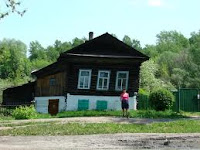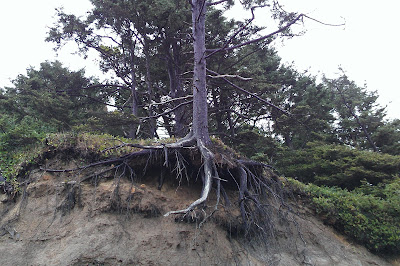I heard a comment on NPR recently: “One must be humble in the face of facts.” It struck me as really important, though I wasn’t sure why. So I wrote it down. Eventually, this comment took me in two very different directions – one about the nature of “facts” and the other about life changes.
My first train of thought was about what we mean by “truth” and about our collective tendency to confuse opinions with facts. I should preface this by saying that I have a long-standing fascination with the nature of knowledge—what the philosophers call “epistemology,” the study of how we come to know and what we accept as “truth.” So, I realize that what counts as a “fact” is always a matter of perspective. What we call “truth,” any of us, depends on the time and place and circumstances of our lives.
For instance, if we had lived in Europe in the 13th century, we would have known for certain that the sun circled the earth. If we had lived in Salem, Massachusetts, in the late 17th century, we would have believed without question that some people were witches. If we had lived virtually anywhere in the Western world in the mid-18th century, we would have been convinced that women were biologically incapable of higher education and that becoming too educated was likely to make them infertile. And if we lived above the Arctic Circle today, the concept of regular cycles called “day” and “night” would make no sense, except for the requirement to interact with the outside world.
So I know it’s important to take the very idea of “facts” with a grain of salt. I also know it’s important not to simply dismiss opinions as meaningless. Folks’ opinions are derived from their experiences, and they often provide valuable insights into reality (especially as perceived by that person).
Still, I find it troubling when actual verifiable, reliable data are dismissed with a comment like, “I don’t believe that.” For example, someone might say, “The research shows that women still face a lot of barriers in this society.” This might be followed by, “I don’t believe those studies. I think women have exactly the same opportunities as men.” Research findings, actual data about discrimination and misogyny are dismissed in favor of personal opinion, which apparently counts the same as any other input. This used to happen sometimes when I was teaching. From what I hear through friends who are currently teaching, it seems to be happening even more now. I was always dumbfounded by it. “Research findings aren't a matter of opinion,” I wanted to scream. “Whether or not you like them, we’re talking about facts here!”
Following this train of thought a bit farther, here’s a risky bit of speculation about the possible historical increase in this tendency. I don’t want to sound like a total Luddite here (or worse, a cranky, ageist old woman), but I wonder if a piece of this tendency comes from the amazing growth of the Internet. Today, you can find nearly any point of view about nearly any topic on the ‘net, and it’s not always clear how to differentiate the wheat from the chaff. What is merely someone’s opinion and what is documented fact? The very existence of social media (and blogs like this one) implies that whatever any given person has to say is worthwhile. It’s as valid as what anyone else has to say. So, if one person’s opinion is as good as any other piece of information, what’s a “fact” anyway? In this sense, “humility in the face of facts” may be somewhat (even increasingly?) scarce these days.
I wish I could say I’m immune to this tendency myself. But it’s easy for any of us to slip into: “I’m so certain about this, how could it possibly be otherwise?” I have to remind myself that the folks in early Europe and 16th century Massachusetts and 19th century America were certain, too. Turns out it’s not always easy to differentiate between subjective certainty and objective data. This definitely calls for the humility championed in the quotation I started with.
And then, I had another thought about this idea that we must be "humble in the face of facts,” this one a reflection on life changes. Here’s how this train of thought happened.
Over lunch, a friend and I were talking about how surprised we are by this seemingly sudden aging of our bodies. Back in the day, she and I were in a group of friends who spent a lot of time engaged in very active, often very strenuous pursuits, most of them outdoors. In recent years, we have both had to come to terms with the growing number of limitations on our activities. The specifics of this path have been different for the two of us—she’s holding up better than I am—but the overall trajectory is similar: the loss of physical excellence, followed by the loss of physical competence, leading now into the territory that looks a lot like the loss of physical ability. This is really hard to accept, even to believe.
What a change from my young adult years! For me, those years lasted for decades. My friends and I were healthy and active, loved the out-of-doors, and had the resources and time to do just about what we wanted to do. Also, I had no children, so there was really nothing to remind me that I was aging, no events to mark the passing of years and decades. No child had a first step, a first day of school, a first date, a graduation, a first live-in partner, a child of her/his own. I had no “empty nest” crisis because the nest was always “empty.” As far as I could tell, life stayed the same over decades (of course, some things changed, but you get my meaning). My body, my health, my activities stayed the same, year after year. So, with little sense of the gradual passage of time, suddenly, this astonishing process of aging materialized. So ultimately futile to deny and impossible to avoid.
(Just to be clear, this isn't all we talked about ... it's just the part that's relevant here.)
Driving home after this conversation, I realized that our discussion was exactly about cultivating humility in the face of facts. It’s often impossible for me to grasp that life has changed so much, that there are things I simply can’t do any longer—backpacking, downhill or cross-country skiing, bike trips, canoe trips, running, dancing, even opening stuck jars without mechanical help!—no matter how much I might want to. In fact, whether I want to do a particular thing or not is sort of irrelevant. It’s frequently not an option. This is hard to believe, hard to absorb. Certainly hard to face with humility!
I’m definitely not suggesting that aging is a process of giving up on living energetically. On the contrary; for me, it’s a process of maximizing the possibilities that I realistically have. My life is full now of different sorts of adventures with their own, very different sorts of satisfaction. In fact, part of what we talked about was just this: how grateful we both are that we have other interests, non-physical passions.
Still, although it may be a fact, this aging thing is still something of a surprise to me. Therein lies the challenge: to be humble in the face of facts. And then, I guess, the rest is up to us.




















